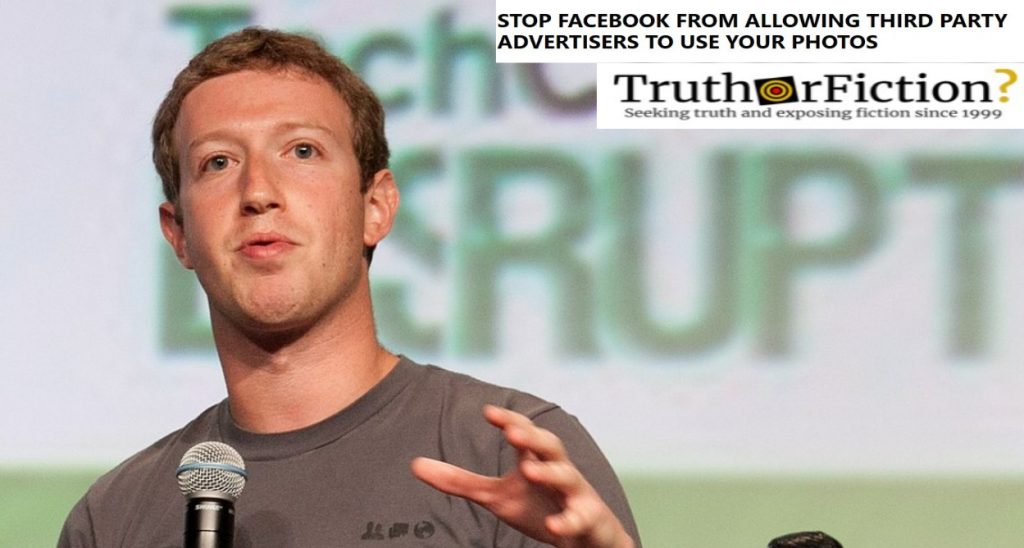In July 2009, Facebook faced criticism over alleged sharing of its users’ photographs — a prelude to even bigger controversies as the platform’s influence grew.
If you were on the platform over the last decade or so, you might have seen people posting some version of this:
Don’t forget tomorrow starts the new Facebook rule where they can use your photos. Don’t forget Deadline today!!! It can be used in court cases in litigation against you. Everything you’ve ever posted becomes public from today Even messages that have been deleted or the photos not allowed. It costs nothing for a simple copy and paste, better safe than sorry. Channel 13 News talked about the change in Facebook’s privacy policy. I do not give Facebook or any entities associated with Facebook permission to use my pictures, information, messages or posts, both past and future. With this statement, I give notice to Facebook it is strictly forbidden to disclose, copy, distribute, or take any other action against me based on this profile and/or its contents. The content of this profile is private and confidential information. The violation of privacy can be punished by law (UCC 1-308- 1 1 308-103 and the Rome Statute.) NOTE: Facebook is now a public entity. All members must post a note like this. If you prefer, you can copy and paste this version. If you do not publish a statement at least once it will be tacitly allowing the use of your photos, as well as the information contained in the profile status updates. FACEBOOK DOES NOT HAVE MY PERMISSION TO SHARE PHOTOS OR MESSAGES.
As news outlets reported at the time, chain emails and posts circulating on the platform warned people that Facebook was selling their photographs without their consent to advertisers or courts; according to the Canadian Broadcasting Corporation (CBC):
For readers inclined to believe the worst of the website, the story hardly seemed surprising. After all, wasn’t this the same company Canada’s Privacy Commissioner found in breach of federal privacy law? Didn’t they recently change the terms of service on the site, only to back-track? Wasn’t their some debacle involving advertisers and an application called Beacon?
However Facebook says this latest rumour isn’t true.
“In the past couple of days, a rumor has begun spreading that claims we have changed our policies for third-party advertisers and the use of your photos,” wrote Facebook manager of policy communications Barry Schnitt on Friday.
“These rumors are false, and we have made no such change in our advertising policies.”
Just under two years later, NBC’s Today Show reported that people were again concerned that they were being used in advertising against their will; this time the platform blamed the issue on an “outdated” setting.
The worries over privacy became more concrete in December 2012, when Instagram (a platform devoted solely to photographs and videos) announced that it reserved the right to sell users’ content. As the tech news site CNet reported at the time:
The new intellectual property policy, which takes effect on January 16, comes three months after Facebook completed its acquisition of the popular photo-sharing site. Unless Instagram users delete their accounts before the January deadline, they cannot opt out.
However, after both intense criticism from users and immediate attempts from competing platforms like Flickr to lure people away with the promise of more stringent privacy policies, Instagram (and Facebook) reversed course.
But the public’s worst fears about Facebook (and its subsequent parent company, Meta) mishandling their information have come to pass in the years since, most visibly in the platform’s association with the right-wing research firm Cambridge Analytica, which prompted a class-action lawsuit and sanctions against Facebook totalling nearly $6 billion as of March 2023.
Also in March 2023, a joint investigation by The Center for Investigative Reporting and the non-profit news site The Markup found that Facebook was among platforms sharing data related to “people seeking abortion” with law enforcement:
Using Blacklight, a Markup tool that detects cookies, keyloggers, and other types of user-tracking technology on websites, Reveal analyzed the sites of nearly 2,500 crisis pregnancy centers—with data provided by the University of Georgia—and found that at least 294 shared visitor information with Facebook. In many cases, the information was extremely sensitive—for example, whether a person was considering abortion or looking to get a pregnancy test or emergency contraceptives.
As for Schnitt, he would go on to leave Facebook in 2012; in June 2020, he drew media coverage for publicly saying that he had been wrong to support the company’s interpretation of “free speech,” which meant allowing inflammatory posts from then-United States President Donald Trump to stay on the platform.
“Facebook says, and may even believe, that it is on the side of free speech. In fact, it has put itself on the side of profit and cowardice,” Schnitt wrote in an open letter to his former cohorts.
Those concerns were also vindicated in the long run, as Meta has since allowed Trump to return to the platform.
Update 3/7/2023, 1:26 a.m. PST: This article has been revamped and updated. You can review the original here. — ag

